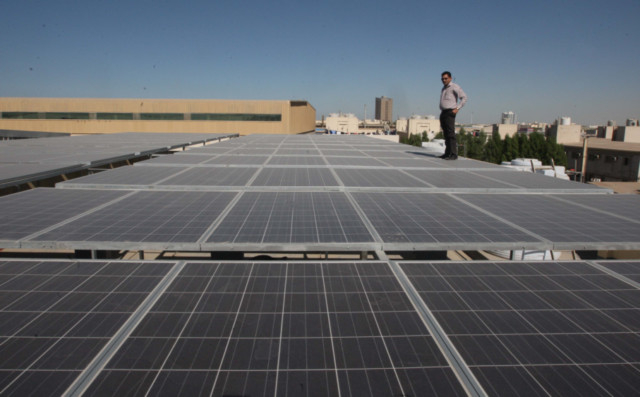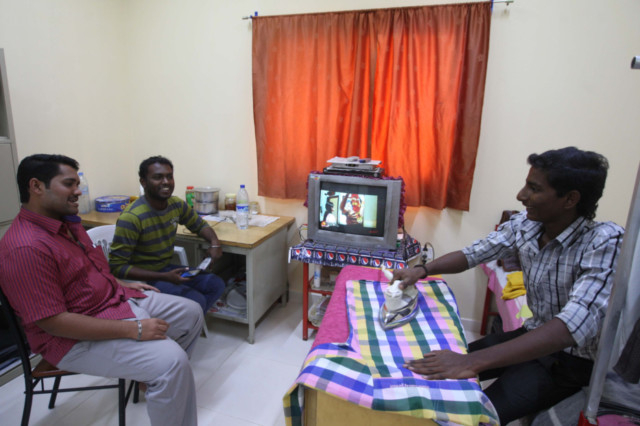
AJMAN After a hard night’s work, Elias Rumao, 45, hits the bed every morning with the AC set at a pleasant 24 degrees Celsius. On waking up, he switches on the kettle for a midday tea while catching up on the day’s big news from India on the telly and getting on with his other daily chores including using their top-loading clothes washer.
This may appear like any other mundane exercise in just any other labour accommodation, but it’s actually not. Reason? This labour accommodation runs totally on solar energy and is the first one to do so 24x7.
Life’s good
“We don’t feel conscious anymore of using up lots of power and facing potential black-outs thanks to these new arrangements. Life’s a whole lot better really,” says Rumao, a welding supervisor, as he settles down in his chair in room No 2 that’s shared by two other workers. There are currently 24 workers in all, living in six rooms, who are the first lot in the camp, originally meant for 600 workers, to use the energy produced by the new solar power system, installed recently on the terrace of this two-storey building.
“Depending on the time of year, energy generation will vary between 280 – 315 kWh/day. When the energy consumption needs to be increased in the camp, we will increase the size of the system to meet the increased demand,” says Sachin Garg, the electrical engineering head of KHK, the Ajman-based scaffolding company that installed the system in September.
“The PV panel array installed is 56 kWp (224 panels) which means there is sufficient back-up on a daily basis. On a cloudy day, we have generator back-up but that’s not even a remote possibility here in the UAE,” adds the engineer from Delhi. “This flexibility, where we can increase our power generation we require, is a very compelling aspect of renewable power.”
Omer Ghani, the Chief Executive of Qmega, the UAE-based solar power technology company that developed the solution for KHK, says there is no other labour camp he knows of that runs entirely on solar power. “The cost of energy generated from the system is Dh0.23 per kWh. When you compare the costs for a kWh of energy in Dubai, it really is cost effective, but the greater incentive for a company to install these panels is that they are not only helping reduce the country’s carbon footprint but also taking the next step in using innovation to the hilt,” says Ghani.
Design and installation of solar panels for the entire camp will cost KHK about Dh3.6 million.
Using diesel fuel to generate the same would cost about a third, every year, year on year, he says. “So in three to four years time, a company recovers the initial investment and the savings get bigger every year. It’s an easy choice to make – financially and environmentally,” adds the entrepreneur from Pakistan.
“However as a company that focuses on the well-being of its workers as a core value, it is our desire to adopt a power source so the camp would have a clean and noise-free environment that led us to go green. Therefore, we decided to install a solar power solution that could power the camp independently, so we could stop using diesel,” says Garg while taking XPRESS on a tour of the accommodation.




